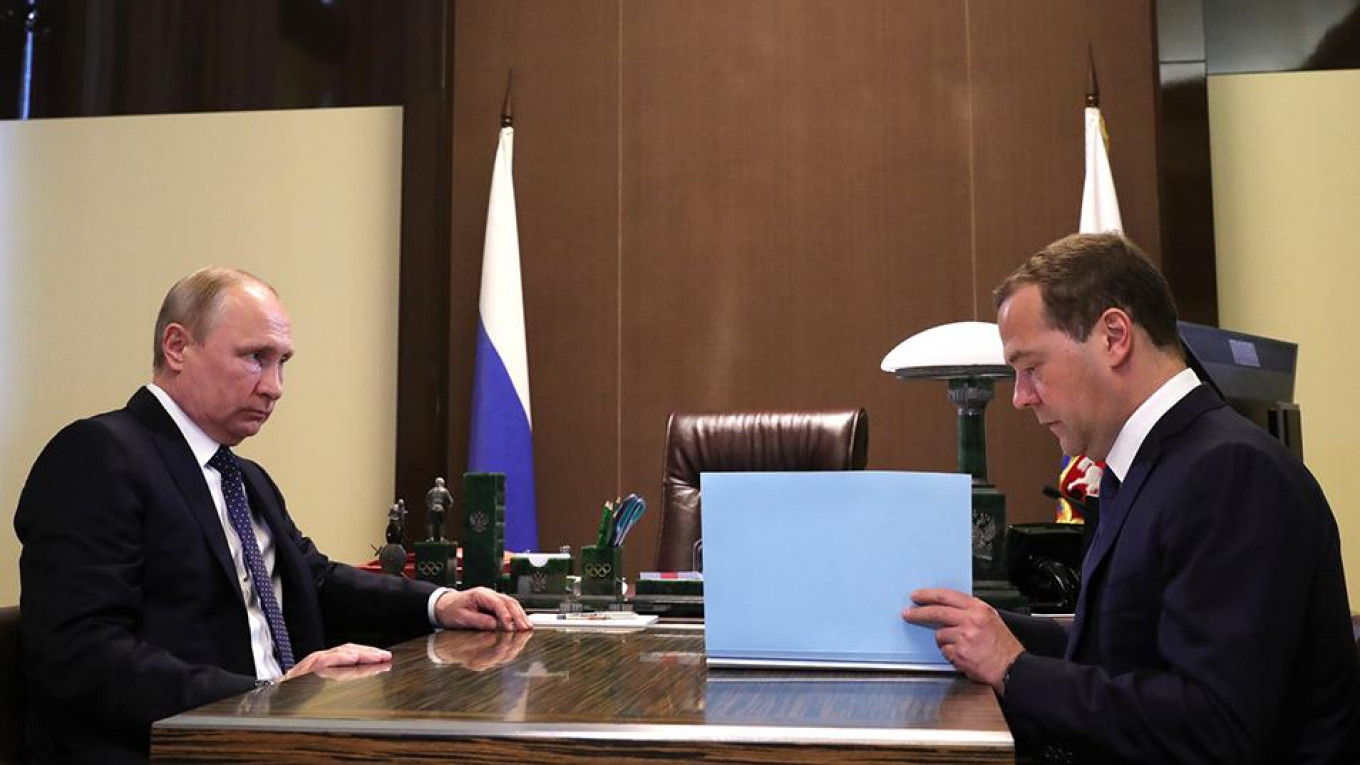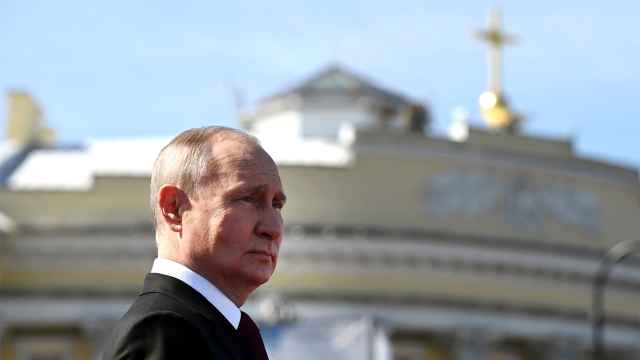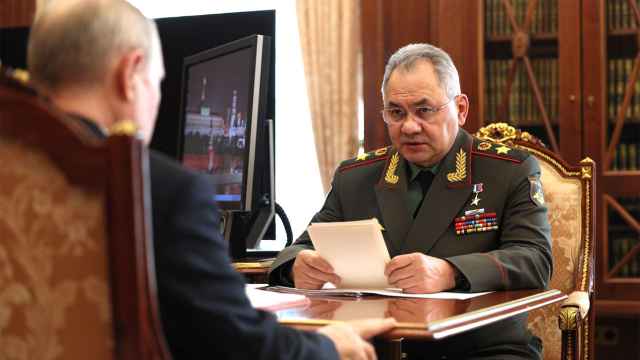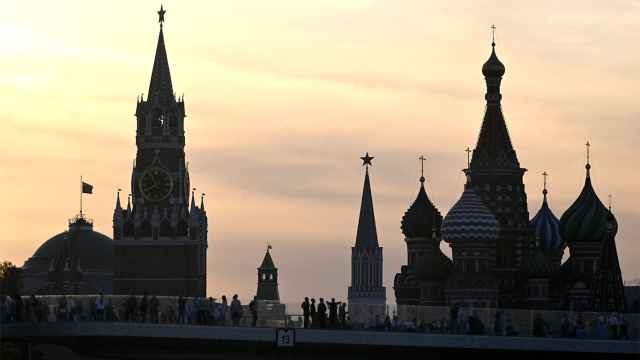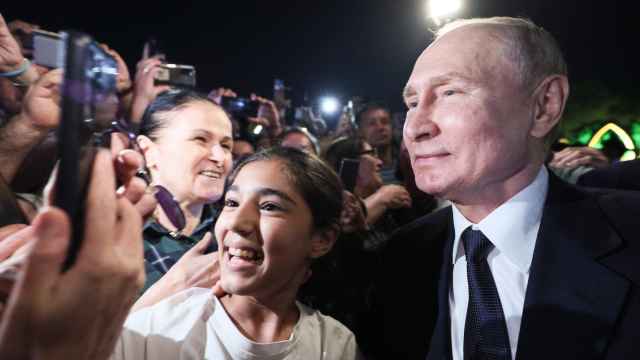Russian President Vladimir Putin endorsed a new government line-up on Friday at the start of his new term in office, sticking in most cases with the incumbents but elevating two newcomers with ties to the intelligence services.
Dmitry Medvedev, whom Putin had already reappointed as prime minister, proposed the new cabinet at a meeting with Putin in the Black Sea resort of Sochi that was broadcast live on Russian state television.
"Almost all the candidates are well-known people with experience and a good track record at their previous places of work," Putin said.
"I give my approval," he said.
The big-hitters in Putin's team kept their jobs: Foreign Minister Sergei Lavrov, Defense Minister Sergei Shoigu, and Alexander Novak, the country's energy minister who helped mastermind a global deal to prop up crude oil prices.
Maxim Oreshkin, appointed economy minister in late 2016, will retain his job, as will trade and industry minister Denis Manturov, and Sports Minister Pavel Kolobkov.
Medvedev named Yevgeny Zinichev, who served as Deputy Director of Federal Security Service (FSB), as the new emergency minister.
Medvedev put forward the son of FSB chief Nikolai Patrushev, Dmitry, for the job of agriculture minister.
There were no places in the cabinet for Igor Shuvalov and Arkady Dvorkovich, who were deputy prime ministers in the outgoing government. They had positioned themselves as champions of private business, though with limited practical effect.
The currency market reacted negatively to the appointments in the minutes after the lineup was unveiled.
The rouble pared gains and weakened to 62.19 versus the dollar from levels of 62.08 seen before the announcement.
Putin secured a new six-year term in office after more than 70 percent of voters backed him in a March 18 presidential election. He is now in his second consecutive term and his fourth term overall.
Putin was sworn in for the new term in early May and signalled he would keep faith with a policy direction that, among other things, has brought Russia into conflict with the West.
The following is a list of the ministers in the new Russian new government:
Prime Minister
- Dmitry Medvedev - 52. Was reappointed to the position he has held since 2012. Served as Russian president from 2008 to 2012.
Deputy Prime Ministers
- Konstantin Chuyuchenko - 52, Government Chief of Staff and Deputy Prime Minister. Was Kremlin aide from 2008.
- Anton Siluanov - 55, First Deputy Prime Minister and Finance Minister. Held the finance minister position since the end of 2011.
- Dmitry Kobak - 59, Deputy Prime Minister responsible for energy and industry sectors. Has been a deputy prime minister from 2008.
- Vitaly Mutko - 59, Deputy Prime Minister responsible for construction and regional development. From 2012 to 2016 was Sports Minister than was appointment to Deputy Prime Minister position later.
- Yuri Borisov - 61, Deputy Prime Minister responsible for defense industry complex. Was Deputy Defense Minister since 2012.
- Maxim Akimov - 48, Deputy Prime Minister responsible for transport and communications. Was First Deputy Government Chief of Staff in previous government.
- Alexei Gordeyev - 63, Deputy Prime Minister responsible for agro-industrial complex. He was Agriculture Minister from 1999 to 2009. After this was governor of Voronezh Region and Putin's Envoy in the Central Russian region.
- Tatiana Golikova - 52, Deputy Prime Minister responsible for welfare. Was the head of Russia's Audit Chamber since 2013, also a former Minister of Health and Social Development.
- Olga Golodets - 56, Deputy Prime Minister responsible for culture and sport. Was Deputy Prime Minister in the previous government since 2012.
- Oleg Trutnev - 62, Deputy Prime Minister responsible for Russian Far East development. Was Deputy Prime Minister since 2013.
Ministers
- Finance Minister - Anton Siluanov
- Energy Minister - Alexander Novak, 46. Held this position since 2012.
- Foreign Minister - Sergei Lavrov, 68. Held this position from 2004.
- Defense Minister - Sergei Shoigu, 62. Held this position since 2012.
- Economy Minister - Maxim Oreshkin, 35. Held this position since 2016.
- Industry and Trade Minister - Denis Manturov, 49. Held this position since 2012.
- Agriculture Minister - Dmitry Patrushev, 40 years. Held the position of Chairman of the board of directors of Russian Agricultural Bank.
- Sport Minister - Pavel Kolobkov, 48. Held this position from 2016.
- Minister of Internal Affairs - Vladimir Kolokoltsev, 57. Held this position from 2012.
- Emergencies Minister - Yevgeny Zinichev, 51. Held the position of Deputy Director of Federal Security Service.
- Transport Minister - Yevgeny Ditrikh, 45. Held the position of Deputy Transport Minister since 2015. Education Minister - Olga Vasilieva, 58. Held this position from 2016.
- Science and Higher Education Minister - Mikhail Kotukov, 41. Held the position of the head of Federal Agency for Scientific Organizations.
- Minister of Natural Resources and Ecology - Dmitry Kobylkin, 46. Held the position of governor of Yamalo-Nenets district since 2010. Minister of Health - Veronika Skvortsova, 57. Held this position from 2016. Minister of Labor and Social Development - Maxim Topilin, 51. Held this position since 2012.
- Justice Minister - Alexander Konovalov, 49. Held this position from 2008.
- Culture Minister - Vladimir Medinskiy, 48. Held this position from 2012.
- Minister of Construction - Vladimir Yakushev, 49. Held the position of governor of the Tyumen Region since 2005.
- Minister of Communications - Konstantin Noskov, 39. Held the position of head of Government Analytical Centre since 2012. Minister for development of the Far East - Alexander Kozlov, 36. Held the position of governor of Amur Region since 2015.
- Minister for development of the North Caucasus - Sergey Chebotarev. According to publicly-available information, he held the position of Deputy Head of Presidential administration's department of trans-regional and cultural ties with foreign countries.
A Message from The Moscow Times:
Dear readers,
We are facing unprecedented challenges. Russia's Prosecutor General's Office has designated The Moscow Times as an "undesirable" organization, criminalizing our work and putting our staff at risk of prosecution. This follows our earlier unjust labeling as a "foreign agent."
These actions are direct attempts to silence independent journalism in Russia. The authorities claim our work "discredits the decisions of the Russian leadership." We see things differently: we strive to provide accurate, unbiased reporting on Russia.
We, the journalists of The Moscow Times, refuse to be silenced. But to continue our work, we need your help.
Your support, no matter how small, makes a world of difference. If you can, please support us monthly starting from just $2. It's quick to set up, and every contribution makes a significant impact.
By supporting The Moscow Times, you're defending open, independent journalism in the face of repression. Thank you for standing with us.
Remind me later.



